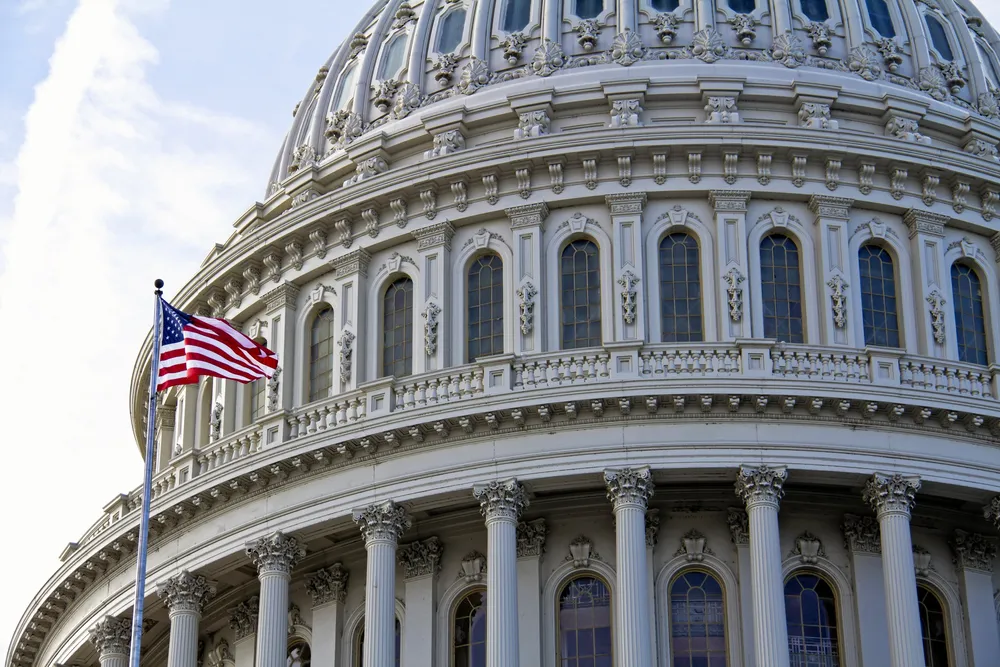Senate Republicans deal blow to US wind and solar with early tax credits repeal bill
Move increases likelihood that Congress will eliminate incentives for generation and production of wind components after 2027

Senate Republicans on Tuesday stood by their proposed phaseout of wind and solar tax breaks four years ahead of schedule, which offers projects slightly more time to qualify for them than a bill the House of Representatives narrowly passed last month.
Senator Mike Crapo of Idaho, chair of the Senate Finance Committee, which issued a draft bill Monday detailing the changes, said they would save taxpayers hundreds of billions of dollars.
Clean energy groups slammed the premature cut-off, saying it would imperil numerous projects and was short-sighted with the country needing every electron to meet forecast energy demand growth
Wind related stocks were little changed in early New York trading today. In contrast, solar stocks suffered steep losses. Enphase Energy lost 27%, First Solar was off 19%, while Solar Edge Technologies and Sunrun were down 39% and 43%, respectively.
That reflects investors' belief that solar would be much more impacted by early sunset of the incentives than wind, which saw onshore installations decline to a decade-low in 2024 and with the administration working to scuttle development offshore.
A handful of Republicans, who have a 53-47 majority in the Senate, won party support for projects that begin construction this year to continue qualifying for technology-neutral investment and production tax credits at full value, plus bonus adders if eligible.
For work that begins in 2026, the credits step down to 60% of their present value, and 20% in 2027. After then, they would sunset.
In contrast, the partisan House “One Big Beautiful Bill Act” would require projects to start construction within 60 days of President Donald Trump signing it into law to receive the credits, while they would also have to enter commercial operation by 2028.
The Senate version also has slightly less onerous provisions covering foreign entities of concern (FEOC) that would deny tax incentives to projects and taxpayers that use equipment or critical minerals from companies in China, Iran, North Korea, and Russia. This includes entities with ties to those excluded companies.
The Inflation Reduction Act (IRA), the 2022 landmark climate law, requires the credits to begin to step down in 2032 over four years, or when power generation greenhouse gas emissions decline to 25% of their levels in 2022.
Whichever occurs later, a provision the Trump administration and Republican fiscal hawks contend will keep the credits into the 2040s.
Trump has pledged to scrap the IRA, which he calls the “new green scam,” looking to apply savings toward extension of tax cuts that expire this year and enact news ones that he promised while campaigning for a second term.
The 547-page measure released by the Senate Finance Committee retains the House provision that phases out the advanced manufacturing production tax credit for wind components at the end of 2027.
While the wind supply chain has more domestic content than its battery storage and solar counterparts, spiking the tax credit would narrow and possibly eliminate their present cost disadvantage.
GE Vernova, the top wind turbine OEM in the US, cited the tax credit as a key reason for investing to upgrade its main nacelle factory in Florida and begin production of a 6MW model in New York State.
A major change from the House bill is the Senate Version would continue existing tax credits at full value for battery storage, geothermal, hydro, and nuclear through 2033, then a step down until they disappear in 2036.
Renewable energy groups were critical of the Senate measure, saying it fell far short of what the industry was anticipating and would hurt the country.
“This represents a retreat from the certainty and scope the market needs to make the energy investments needed to meet escalating electricity demand,” said Ray Long. CEO of the American Council on Renewable Energy.
“Congress has a narrow window to get this right. We urge lawmakers finalize a bill that utilizes all energy technologies, and honors existing pro-growth policies essential for strengthening American competitiveness,” he added.
Abigail Ross Hopper, CEO of the Solar Energy Industries Association, which also represents the battery storage sector, said despite modest improvements on several provisions, “This legislation does not go far enough to remove the threat to one of the greatest economic success stories in American history.”
The bill will now go to the party caucus for review and any revisions, with Republican leaders aiming to bring it to the floor for a vote as early as next week. Opposition Democrats are expected to oppose it.
Republican leaders in both chambers would then meet in an effort to reconcile differences in the two bills, get a final version through the House, with the aim of having it on Trump’s desk by 4 July, the national day of independence.
(Copyright)